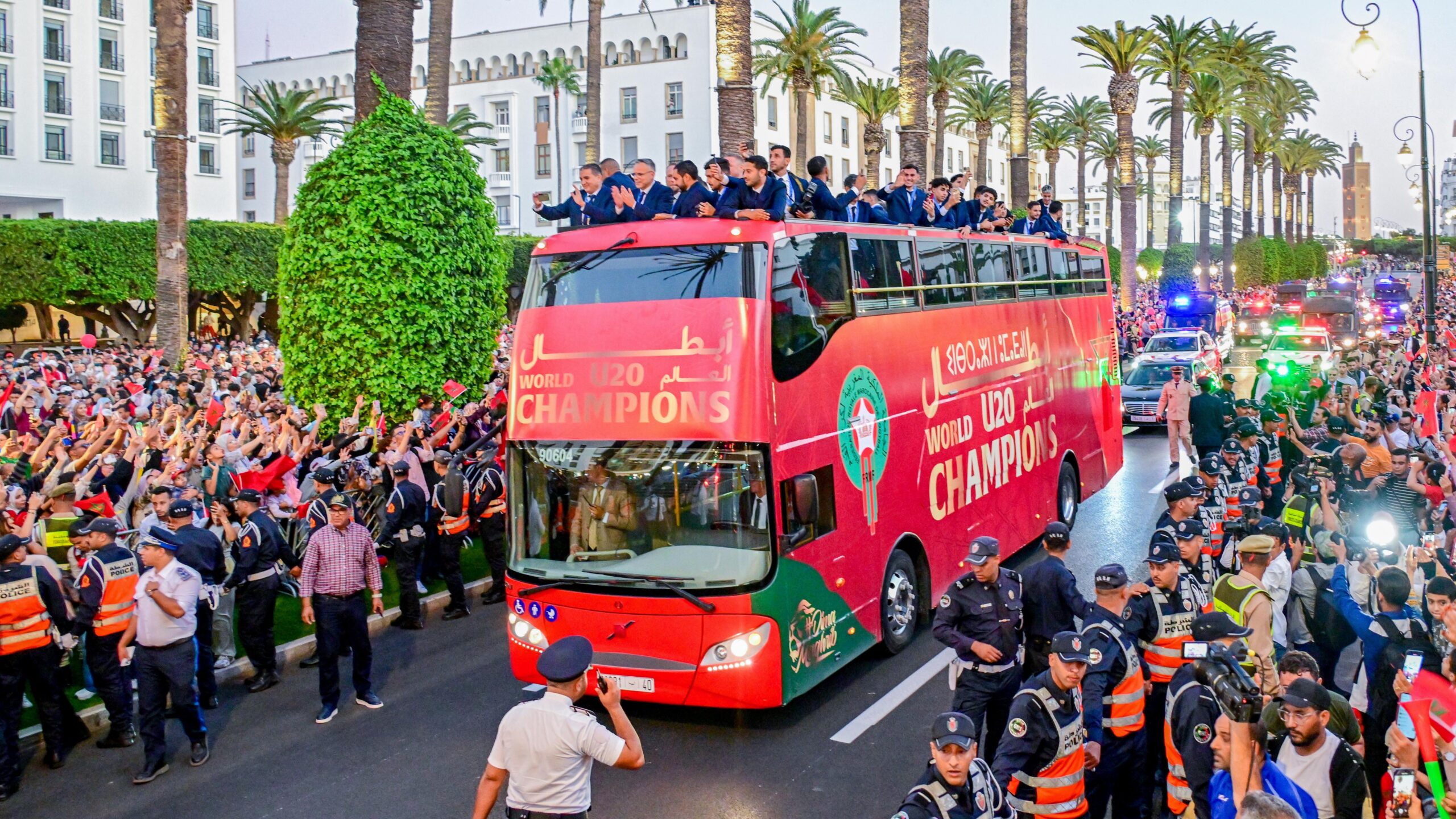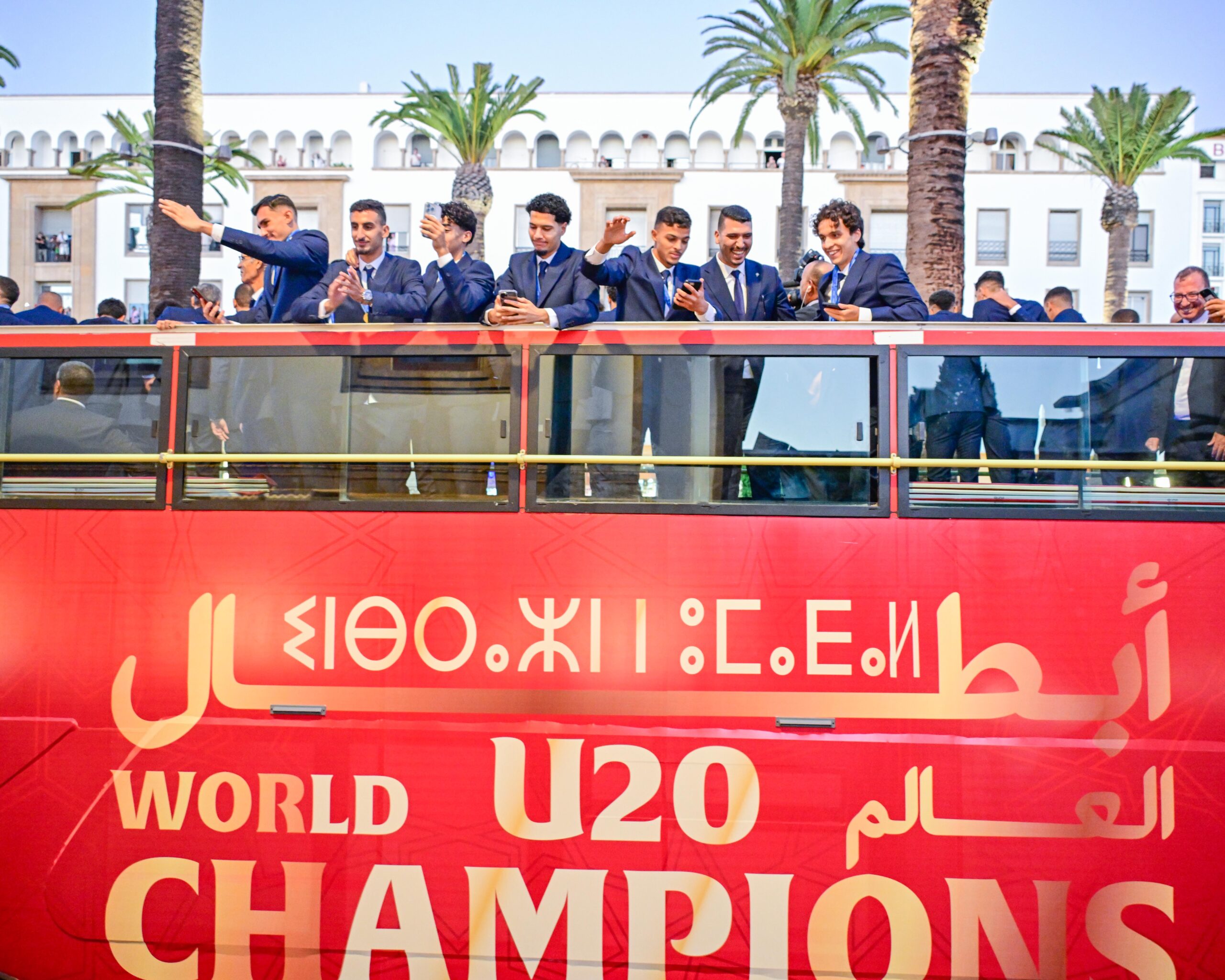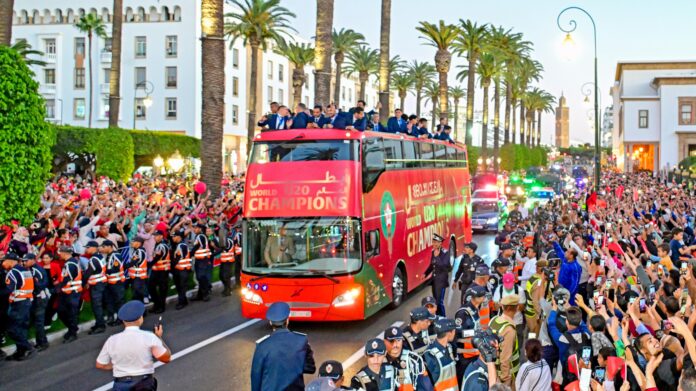A historic first for the Atlas Cubs
History was made in Santiago, Chile. Morocco national team defeated Argentina in the FIFA U20 World Cup final, claiming the country’s first-ever World Cup title in all its age categories. Entering the pitch as underdogs, the Atlas Cubs (the name by which they go by in Arabic – أشبال الأطلس), sealed the win in the first half. They left Chile with the trophy, received a heroic welcome back home, and were honored in a Royal ceremony hosted by the Crown Prince of Morocco.
Morocco national team defeated Argentina in the FIFA U20 World Cup final, claiming the country’s first-ever World Cup title in all its age categories.

The road to glory: conquering football’s elite
In their first U20 World Cup participation in 20 years, the journey to glory was nothing short of spectacular. Morocco demonstrated their quality by defeating football powerhouses like Spain and Brazil in the group stage, topping what was widely regarded as the group of death.
Their knockout campaign continued with impressive victories over South Korea in the round of 16, then the United States in the quarterfinals, and France in the semis. The latter proved to be a dramatic affair, with three Moroccan goalkeepers featuring in the same game, and the team winning 5-4 on penalties after a 1-1 draw.
Throughout the tournament, the Atlas Cubs displayed exceptional tactical discipline, mental fortitude, and unwavering determination, amongst many other qualities. Their character shown on the pitch allowed them to overcome Europe’s and South America’s most established footballing nations.
Building excellence: the Mohammed VI academy imprint
This triumph represents the culmination of years of strategic investment and visionary planning by Moroccan football authorities. The Mohammed VI football academy in Salé, inaugurated by King Mohammed VI in 2009, came to reshape national football and produce the next generation of elite players.
Among the players called up for the U20 World Cup, five regular starters came through the academy: Fouad Zahouani, Houssam Essadak, Taha Majni, Yassir Zabiri, and Yassine Khalifi. A further fact demonstrating the institution’s success in nurturing homegrown talent to compete at the highest international level.
Together with players born and trained overseas, this symbiotic blend of locally-trained and internationally-developed talent was a fundamental part of this historic campaign.
This triumph represents the culmination of years of strategic investment and visionary planning by Moroccan football authorities.
Mohamed Ouahbi: the patient architect of success
Beyond the academy’s work, the Royal Moroccan Football Federation had also a role to play in the journey leading to the triumph. They pursued an active scouting strategy internationally, recruiting talented players and staff with Moroccan heritage from top European academies.
Coach Mohamed Ouahbi, the mastermind behind this achievement, is one of those who answered the country’s call a few years ago. Born in Brussels to Moroccan immigrants, he spent 17 years at Anderlecht’s academy, coaching various age groups from U9 to U21.
During his tenure at Anderlecht, he trained future stars including Youri Tielemans, Romelu Lukaku, Adnan Januzaj, Jérémy Doku, and Leander Dendoncker, and reached the Final Four of the UEFA Youth League in 2015, an unprecedented achievement for the Belgian club.
Appointed to lead Morocco’s U20 team in March 2022, Ouahbi faced early setbacks. However, he carried on with a philosophy centered around discipline, values, patience, and what he calls “breaking the glass ceiling.” His four years of patient work, nurturing young talents and building a cohesive team, despite early criticism, ultimately delivered Morocco’s greatest youth football achievement.
From outsider to contender
This U20 World Cup victory marks a defining moment for Morocco, confirming the nation’s status as a serious contender on the global stage. Following the senior team’s historic run to the 2022 World Cup semifinals in Qatar, this youth triumph demonstrates that Morocco’s football renaissance is not a fleeting moment but a sustained transformation.

As Ouahbi himself noted, what Walid Regragui achieved in Qatar “paved the way for future generations,” breaking mental barriers and proving that Moroccan teams belong amongst the world’s elite, a football nation definitely to be reckoned with.

